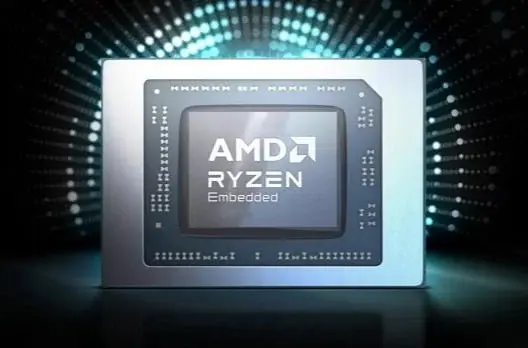AMD has recently introduced a groundbreaking innovation in the realm of industrial AI with the launch of the Ryzen 8000 series embedded processors. These processors mark a significant advancement by incorporating a Neural Processing Unit (NPU) based on AMD’s XDNA architecture, tailored specifically to address the demanding workloads of industrial Artificial Intelligence applications.
Cutting-Edge Technology Integration
The Ryzen 8000 series integrates a Zen 4 CPU, RDNA 3 GPU, and a novel XDNA Neural Processing Unit, setting a new standard in processing capabilities for industrial AI tasks. This sophisticated configuration, developed on a state-of-the-art 4nm process, combines the power of Zen 4 CPU architecture, RDNA 3 GPU architecture, and the innovative XDNA architecture NPU. Notably, this integration results in an exceptional 39 TOPS of AI computing power, with the NPU alone contributing a substantial 16 TOPS.
Enhanced Performance and Features
In addition to its AI capabilities, the Ryzen 8000 series offers a host of impressive features. With 20 lanes of high-speed PCIe Gen 4 connectivity, efficient data transfer is ensured, while support for dual-channel DDR5 5600 memory with error correction (ECC) guarantees smooth operation. The processors have the capacity to drive immersive visuals by supporting up to four independent 4K displays. Furthermore, hardware decoding and encoding capabilities for popular video codecs such as AV1, H.264, and H.265 simplify video processing tasks.
Diverse Offerings and Collaborative Partnerships
To cater to a variety of requirements, the Ryzen 8000 series is available in four distinct models. AMD is actively collaborating with embedded Original Design Manufacturer (ODM) partners like Advantech, ASRock, and iBASE to build a robust ecosystem around these processors. As the demand for AI technologies continues to rise, leading companies like Nvidia and AMD are developing advanced AI chips to support extensive research initiatives on a larger scale.


Leave a Reply